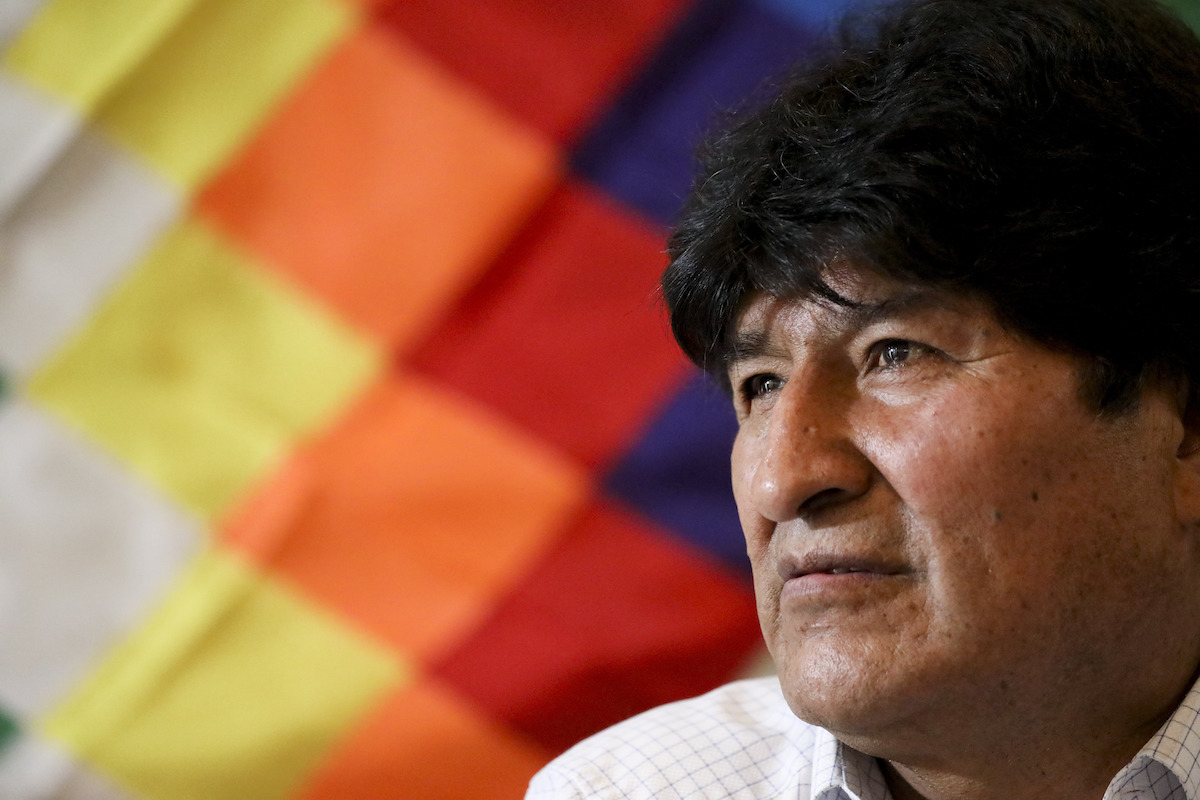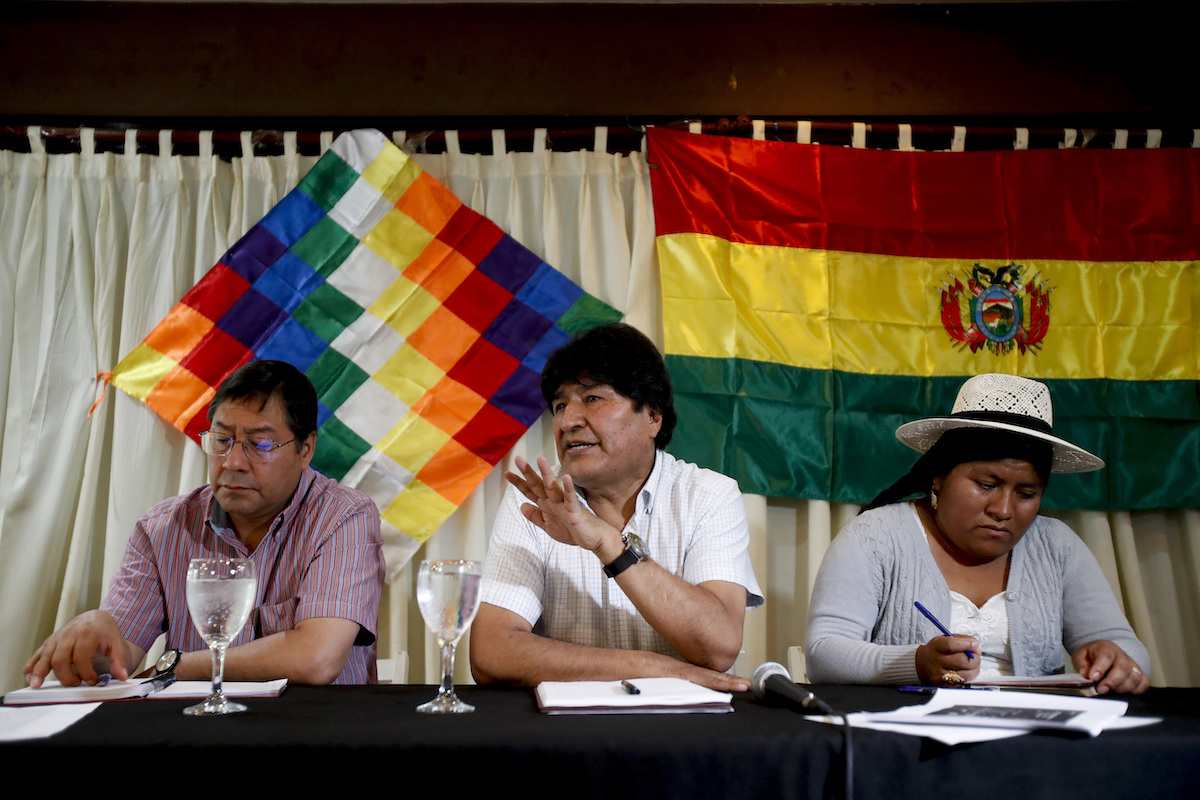

Former President for the Movement Towards Socialism Party referred to as MAS, Evo Morales looks on during a meeting with members of the party in Buenos Aires, Argentina, Monday, February 17, 2020.(AP Photo/Natacha Pisarenko)
By CARLOS VALDEZ, Associated Press
LA PAZ, Bolivia (AP) — Bolivia’s Supreme Electoral Tribunal on Thursday rejected the candidacy of former President Evo Morales for a Senate seat in May’s elections because he does not reside in the South American country, a decision the ousted leader called a “blow to democracy.”
Morales, who resigned in November and fled the country after a disputed October 20 election sparked widespread protests, is barred by law from seeking the presidency but had wanted to run for a seat in the Senate.
Tribunal head Salvador Romero said at a news conference the decision cannot be appealed with the electoral board, though he added that Morales “can explore any judicial routes he sees as pertinent.”
Leaders of Morales’ Movement Toward Socialism party are expected to appeal the ruling to the Constitutional Tribunal.
Candidates are supposed to be residents of Bolivia, and Morales has taken refuge in Argentina while he faces charges in Bolivia connected to October’s allegedly fraudulent election, in which he sought a fourth consecutive term in office. He denies there was vote fraud and has called his ouster, which came amid military pressure, a coup.
“This is a blow to democracy,” Morales tweeted from Buenos Aires about Thursday’s decision. “The members of the TSE [electoral tribunal] know I meet the requirements to be a candidate.”
La decisión del Tribunal Supremo Electoral es un golpe contra la democracia. Los miembros del @TSEBolivia saben que cumplo todos los requisitos para ser candidato. El objetivo final es la proscripción del MAS.
— Evo Morales Ayma (@evoespueblo) February 21, 2020
The country remains bitterly divided following the often-violent tumult that erupted before and after Morales was pushed to resign. Polls show Morales’ party emerging as an early favorite over a fragmented opposition with eight presidential candidates.
After hearing Thursday’s decision, MAS spokeswoman Marianela Paco told The Associated Press the party will not make a statement until it knows the exact arguments for Morales’ disqualification.
“We are going to wait to be notified with the resolution and we will analyze the arguments before speaking,” she said.


Bolivia’s former President Evo Morales speaks to members of his political party, the Movement Towards Socialism Party (MAS), next to the party’s presidential candidate Luis Arce, left, and the party’s Secretary of International Relations Juanita Ancieta, in Buenos Aires, Argentina, Monday, February 17, 2020. Bolivia will hold elections on May 3. (AP Photo/Natacha Pisarenko)
The tribunal did accept the presidential candidacy of former economy minister Luis Arce of MAS, who also faced a demand seeking his disqualification.
Besides Arce, the other presidential contenders for the May 3 election include centrist former President Carlos Mesa, who finished second in the October vote; interim President Jeanine Áñez, whose administration has worked to overturn many of Morales’ policies and prosecute his allies; and regional civic leader Luis Fernando Camacho, a major leader of protests in the eastern economic center of Santa Cruz.


